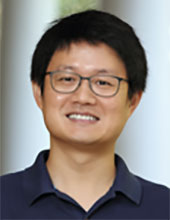SPS Webinar, 14 September 2021: Case Studies of Deep Learning for Channel Decoding and Power Control

Upcoming SPS Webinar
Title: Case Studies of Deep Learning for Channel Decoding and Power Control
Date: 14 September 2021
Time: 1:00 PM ET (New York time)
Duration: Approximately 1 Hour
Presenters: Dr. Cong Shen
Based on the IEEE Xplore® article: An Iterative BP-CNN Architecture for Channel Decoding
Published: IEEE Journal of Selected Topics in Signal Processing, January 2018
Download: Original article will be made freely available for download for 48 hours from the day of the webinar, on IEEE Xplore®

About the topic:
This webinar will demonstrate how deep learning can solve difficult communication problems that prior approaches often fail with two case studies. The first half will discuss a novel iterative BP-CNN architecture for channel decoding under correlated noise. This architecture concatenates a trained convolutional neural network (CNN) with a standard belief-propagation (BP) decoder. The standard BP decoder is used to estimate the coded bits, followed by a CNN to remove the estimation errors of the BP decoder and obtain a more accurate estimation of the channel noise. The second half will discuss PCNet, a deep neural network (DNN) based power control method that aims at solving the nonconvex optimization problem of maximizing the sum rate of a fading multi-user interference channel. A key challenge in training a DNN for the power control problem is the lack of ground truth, i.e., the optimal power allocation is unknown. To address this issue, PCNet leverages the unsupervised learning strategy and directly maximizes the sum rate in the training phase. This webinar will also incorporate ensemble learning with multiple independently trained PCNets to achieve universally superior performance over state-of-the-art power control solutions under a variety of system configurations.
About the presenter:

Dr. Cong Shen received the B.S. and M.S. degrees, in 2002 and 2004 respectively, from the Department of Electronic Engineering, Tsinghua University, China. He received the Ph.D. degree from the Electrical Engineering Department, University of California Los Angeles (UCLA), in 2009.
He is currently an Assistant Professor of the Electrical and Computer Engineering Department at University of Virginia (UVA). He has extensive industry experience, having worked for Qualcomm Research, SpiderCloud Wireless, Silvus Technologies, and Xsense.ai, in various full time and consulting roles. His general research interests are in the area of communication theory, wireless communications, and machine learning. In particular, his current research focuses on the interaction between machine learning and wireless communications.
Dr. Shen was the recipient of the Best Paper Award in 2021 IEEE International Conference on Communications, and the Excellent Paper Award in the 9th International Conference on Ubiquitous and Future Networks (ICUFN 2017). Currently, he serves as an editor for the IEEE Transactions on Wireless Communications, and editor for the IEEE Wireless Communications Letters. He is the TPC co-chair of the Wireless Communications Symposium of IEEE Globecom 2021.

